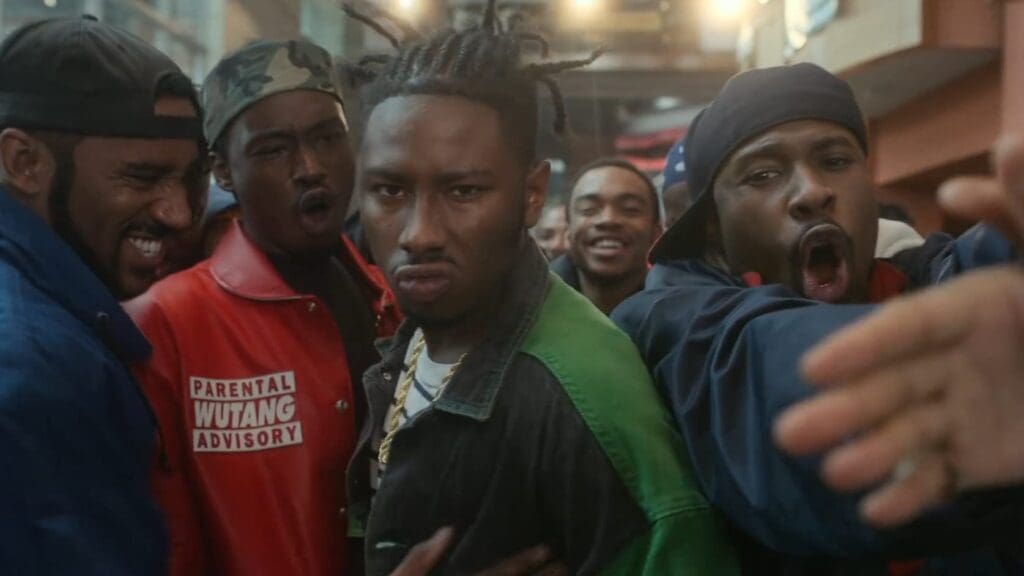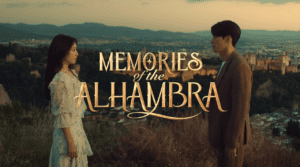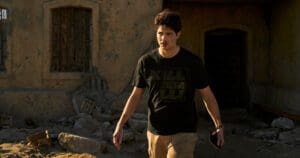Jessica Fontaine of Ready Steady Cut had the honor of interviewing the incredibly talented film and TV editor Marc Wiltshire. A passionate storyteller, he has worked on productions such as Hulu’s Wu-Tang: An American Saga and Peacock’s Bel-Air.
Keep reading to learn about Marc Wiltshire’s journey to becoming a Wu-Tang editor and the inspiration behind his creative choices for the show, which was created and written by a Wu-Tang Clan member, RZA.
An Interview with Marc Wiltshire – the Editor of Wu-Tang: An American Saga
Being part of Wu-Tang: An American Saga
Wu-Tang: An American Saga follows the formation of the Wu-Tang Clan and Bobby Diggs’ passion to bring a dozen black men together who are torn between music and crime. The show tackles issues like police brutality, the difficulty of living in low-income areas, and the long journey of securing a music career. What drew you to the show, and what made you want to be a part of it?
“When I was about eleven years old, I was sitting on a school bus, and another kid handed the driver a mixtape, and what I heard just blew my mind, which was “Wu-Tang Clan Ain’t Nuthing Ta F’ Wit.” I had never heard that song or anything like it before.
That immediately launched me into an obsession with Wu-Tang. Since I was really young, I’ve been a fan. So, of course, when the show came about to me, I thought, “That would be the dream job. If I could work on that show, that would be my passion.”
I was able to get on the show for the final season, which turned out to be even better than I could’ve imagined. I love music, I love editing music, and had that background on Lee Daniels’ STAR and a couple of other shows that were very music-heavy.
A part of it that really drew me was being able to edit performances, not just of music, but to have it be music I felt so closely attached to. That was a next-level opportunity for me that I was just so privileged to have.”
Approach to Editing
In season 3, episode 5, we see what three of the lesser-known members of the Wu-Tang Clan are doing, and we see U-God’s reaction to his son being shot and trying to figure out who did it. What was your approach to editing this episode to make it as captivating and emotional as possible?
“I really wanted to make sure I understood the people as well as I could in order to approach the footage as authentically as I could. The U-God story, in particular, was very riveting and challenging, probably the most challenging of the three because it’s such an intense story.
His son was caught in a crossfire during a shooting in Park Hill Projects, and U-God was on tour when he got the news. His story basically tracks him trying to figure out who did this and get some revenge or closure for that event.
That took a very different turn from the rest of our story about the music industry and trying to make it. This was something that was closer to a crime show or an action-thriller show.
The director, Nefertite Nguvu, brilliantly captured the emotion from that actor. That was something that was very important to us, was believing the performance and shaping the performance, so we’re honoring the real-life people and trying to elevate the stakes of that situation as much as we could.
Stylistically, one of the big influences for us was Hitchcock. Nefertite really wanted to capture the suspense of each moment as much as we could.
We experimented a lot with ways that we could raise the stakes with music and using the right score, but also sound effects and sound design.”
Love Letter to ’90s hip-hop
Your favorite episode of the new season to edit was episode 8, which was like an allegorical film rather than a TV episode. It was awesome to see you incorporate pop culture references and show appreciation for The Wizard of Oz, Star Wars, and other productions. What was your thought process behind that, and how did you go about making this love letter to ’90s hip-hop happen?
“When I read the script, I got it right away. I just understood all of these references and could visualize it and I was so excited to be a part of it. Some of them I hadn’t seen. Through conversations with RZA, he would tell me he had an idea for a shot or that an opening scene would be like a certain movie.
The Naked Island was one example he gave me. It’s a Japanese film from the 1960s that I had never seen or heard of. I went ahead and watched it and was so moved by the visuals. It’s nothing like our show, but we were able to take elements of that as inspiration for the opening titles of our little film.
Gathering all these elements was my first piece of homework. I tried to find as many of the references and then think of ways I could incorporate an easter egg from them. So that could be using a sound effect that came from Star Wars.
I added a line of ADR (automated dialogue replacement) at the beginning of the episode as a tip of the hat to Star Wars. I just used a little bit of that idea as a way to get us into the story through the voice of RZA’s sister, who’s playing this captive radio DJ, and she’s transmitting this message to everybody.
So I thought, “What if we just tease this at the beginning of the show?”
One of my favorite contributions was in the amusement park, where they’re walking through looking for Old Dirty Bastard’s character, called the Fatherless Child. On their journey, they encounter this gang of women that come in on their 4x4s and they’re blasting music.
And it wasn’t scripted what the song would be. All that RZA said was, “I want it to be a sexy R&B song because the gang’s name is Roma’s bitches, so R&B.” That was it, I just had to think of a cool, sexy R&B song.
Right away, I looked at the Billboard charts of the mid-’90s, and Mariah Carey’s Fantasy just popped out to me as the perfect song because there’s even a line from Masta Killa who says, “I think I see a mirage.” So I started thinking about fantasy and how that was a perfect thing to put in, but also, Old Dirty Bastard is in the music video for Mariah Carey’s Fantasy.
So connecting all of these things together, it’s a subtle tip of the hat to the members, to ODB, and to ’90s hip-hop culture that I was really proud of being able to put in, and RZA was really happy with that as well.”
Challenges of Being an Editor
What challenges and opportunities have you found as an editor?
Every project is so drastically different, and I think finding the right tone for each project is its own challenge. For this show on its own, each episode had its own identity and rhythm.
One of the big challenges of editing is figuring out what the story we’re telling is and how the best way to tell it is. That is not a consistent thread from project to project. Working on Bel-Air had its own challenges, often related to finding the right kind of music.
In contrast to Wu-Tang which was all ’90s hip-hop by design, Bel-Air had a really mixed palette of very current hip-hop and the older generation listening to older hip-hop. Finding the through line that the music can do from each character and scene-by-scene is one of the challenges that I’ve come across.
Working with different people who have different ideas of what their show is and what that should feel like has been one of the fun exercises that I go through.
The Important of Editing in the Film and TV Industry
How important and effective do you think editing is to a TV or film production?
When I approach a project, I’m thinking, “It’s not my project, but my job is to explore and experiment with what the best way to tell the story is with the footage that we have and the materials that we have.”
I’ve figured out that it has a tremendous impact because you don’t really know what you have until you start putting it together and trying things, and it’s a very safe space where we are fortunate enough to be given the time.
The final product that you watch as a TV show or film is probably very different from what was maybe intended initially. Some of the best films that I’ve seen, I would learn later that they were discovered in editing, or that they solved this big problem.
How that impactful scene really came together was through trial and error, just shooting paint at the wall, and seeing what can happen. I think genuinely that editing is the foundation of cinema.
Thanks for reading our interview with Marc Wiltshire! We’d love to know what you think in the comments below.



